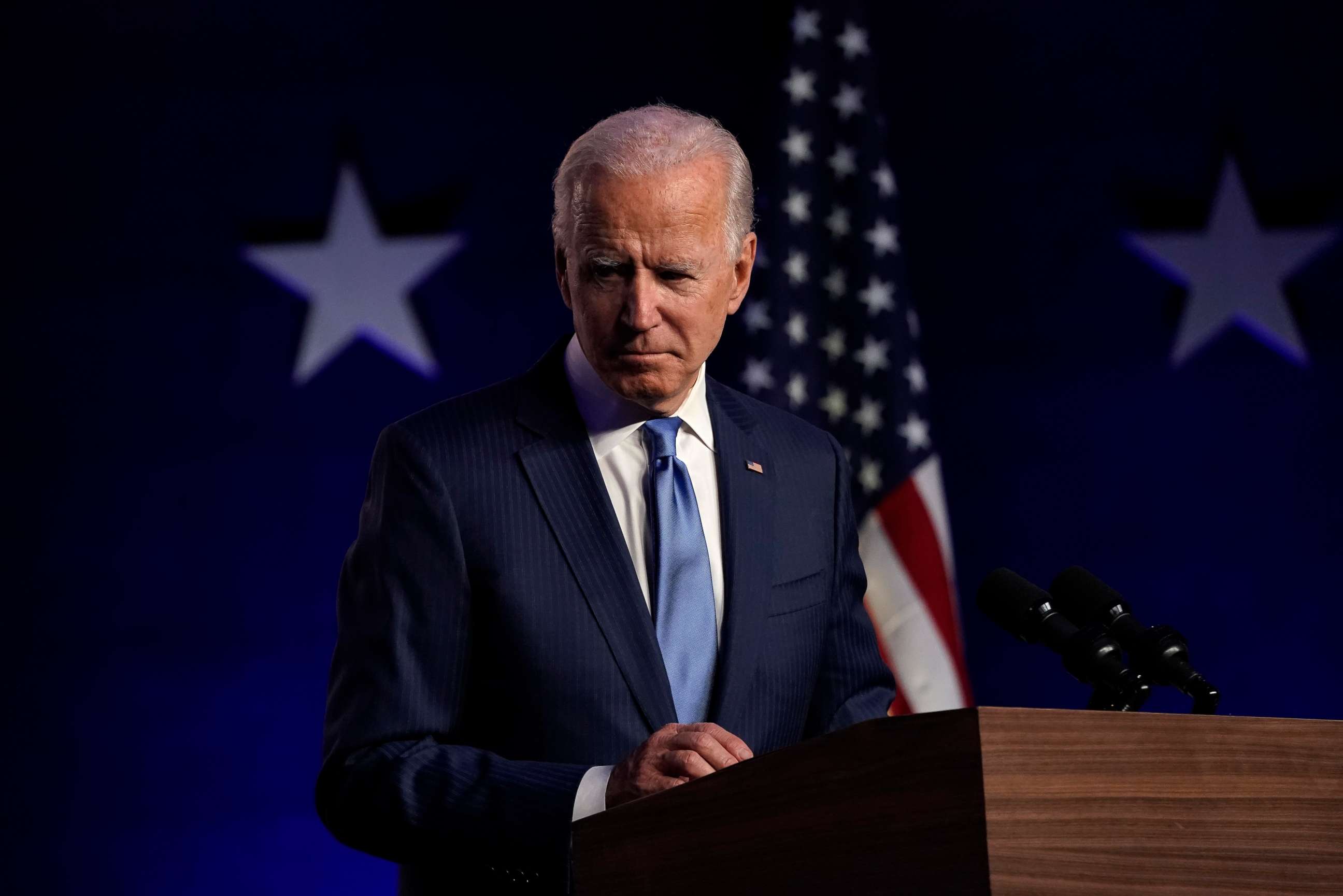What America can learn from Joe Biden and Kamala Harris winning the White House: ANALYSIS
Biden's win reveals the changing demographics of the U.S. electorate.
On this historic day, with Joe Biden and Kamala Harris set to ascend to the White House, I wanted to reflect on a few points we might learn from this election and what it could mean for politics and governance going forward.
Here are my fast five takes:
1. In this millennium, Democratic presidential candidates are 3-0 when they have a person of color on the ticket; they are 0-3 when they don't. It's an important indicator of a changing America and its diversity.
The share of people of color voting in 2020 was the highest in history, and will keep growing. We are a country that is becoming more diverse by the day, and leaders must reflect that with inclusion. Though each diverse community is not a monolith, more diversity in politics is not just the right thing to do, it makes us more successful.

2. Once again we see an election where independent voters were the deciding factor in picking the winners across America. More independents voted in this election than any in history. President Donald Trump and Biden got the largest share of their party voters in modern history -- with each getting 94% of the party vote. Trump got a higher vote share of Republicans this year than he did in 2016.
No longer are we at a point when either party will steal many votes from the other party. It is independents that swung the elections in 2016, 2018 and 2020. Yes, motivation of the bases matters, but independents are the true swing vote in America. There is often an argument from Republicans that the U.S. is a "center-right" country; Democrats often argue it's a "center-left" country. What we are is a "center" country, and the largest group of Americans falls in the moderate category.
3. The electoral state landscape again continues to shuffle. Yes, Wisconsin, Michigan and Pennsylvania are still key in a presidential race, and no party has a lock on any of them. A blue wall in the Midwest no longer exists.
Also, it is increasing clear that Iowa and Ohio should not be considered true swing states; they now lean Republican. Florida, while still a potential swing state, is moving away from the Democrats. And now the Democrats have firmly broken through the red wall of Nevada, Arizona and Georgia. In a few years, because of changing demographics, Democrats will break through the red wall in North Carolina and Texas.

Democrats and Republicans would be wise to no longer bet on swing states of the past, but invest more in swing states of the present and future.
4. There are many bright lights -- as well as warning signs -- for both parties from this election. Republicans and Democrats each had historic turnouts in an election. That is good news for the parties, as well as for America. Democrats continue to demonstrate huge strength in urban and suburban jurisdictions of America, while Republicans show a tremendous force in rural America and in exurban spots.
In a country becoming increasingly diverse, Democrats are the most diverse party. While Republicans have gotten a slight uptick in some minority support, they are still primarily a party composed of white voters. Republicans also are increasingly doing well among working class non-college white voters, which used to be the base of the Democrats. That group is growing smaller for Republicans each day. Both parties have work to do if they want to emerge as the true majority party from election to election.
5. Finally, and I noted this after the 2018 election, when issues are put on the ballot divorced from a partisan brand, there is an incredible ability to get voters to support policies outside their partisan boxes. In 2018, when put on the ballot with no partisan brand, expanding Medicare and increasing the minimum wage passed in deeply red states. This election, the minimum wage was raised in Florida while Trump carried the state fairly easily. And in South Dakota, Montana and Mississippi voters expanded access to marijuana in conservative states.
As the days and weeks ahead unfold, we will learn more about what was revealed in this election, and like life itself, we should be open to truths that are revealed even if they counter prevailing wisdom. It is how we can grow as individuals and as a country.




